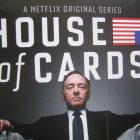How To Fall in Literary Agent Love
In my last post, I shared with you the checklist I used to put together my own book proposal. It contained all the building blocks I’d become familiar with when working as an editorial assistant for an academic book publisher, plus a few other tips I’d picked up over the years from former writing professors and how-to books.
So I can only assume that, by this point, you have an amazing, solid book proposal ready to go, and are already daydreaming about the book advance and lit parties in your future.
Not so fast, word nerd. While academic publishers—and some small presses—accept unsolicited book proposals and manuscripts, most traditional book publishers won’t look at your work unless it comes to them via a literary agent.
I can hear you grumbling already. What the what!? Another barrier to publication? But believe me: you’ll only benefit from the help an agent can provide. Not only are they the gatekeepers to big-name publishers, but they have their fingers on the pulse of the literary marketplace, can help you strengthen your proposal, have relationships with editors (and intimate knowledge of their preferences) that allow them to target the best possible publishers for your book, and can also negotiate a helluva book contract (a process during which many of us would be completely out of our element).
Yes please to all of that.
So how do you go about finding one?
Read the acknowledgments pages of your favorite books. In order to pinpoint agents who might be interested in the book you’re proposing, draw up a list of similar books you’ve read, loved, and admired. It stands to reason that anyone who would represent those authors might possibly be into you, too. Luckily, most authors thank their agents in the acknowledgments section of their book, so it’s easy enough to discover who represented who.
Flip through agent directories. New ones come out every year and, while it may seem tedious to slog through them, they carry a lot of valuable information. Some directories show only the basics, such as which genres agencies are looking for and which are open to new writers. Others go even further, asking agents for the lowdown on their likes and dislikes, and tips on things like the most common mistakes writers make when pitching. Not only that, but most directories also contain additional content on crafting query letters, putting together nonfiction book proposals, attending writer’s conferences, copyright basics, and more.
Visit agency websites. After drawing up your initial list, visit the websites of those agents and agencies that happen to be your front-runners. This will give you even more information on whether or not they’re accepting proposals at this time, how they prefer to receive queries, and how long it typically takes them to respond (so you know when to follow up).
Other options. Of course, there are other ways to familiarize yourself with the agents out there. I read this mediabistro list of the Best Literary Agents on Twitter, and followed the ones who seemed the most interesting. There are also Twitter hashtags you can follow if you’re in the midst of your lit agent search, such as #askagent (impromptu Q&A sessions with lit agents) and #MSWL (wherein agents share their manuscript wish lists).
Other authors register for Publishers Lunch—through which they can read book industry news, receive alerts about new book transactions, and search a database to see which agents are representing which books—or subscribe to Publishers Weekly.
Some authors also make agent connections at conferences (and many writers’ conferences—such as ASJA’s annual conference—host sessions in which you can sign up to query agents in person).
There are a ton of options out there if you’re looking to find more info on literary agents, but I do want to caution you against one tactic:
Please, for the love of god, don’t spam every gosh darn literary agent out there just because you’re desperate for representation.
You have to be systematic about it. And you have to be choosy.
That’s right. Choosy.
Sure, all of the agents you query will be evaluating your worthiness as an author. But you need to be confident in their worthiness as well.
Because finding the perfect agent is like falling in love. You should click. You should see eye to eye. You should both be open to compromise, deferring to each other’s wisdom and vision.
After all, the more passion an agent feels for your book project—the more he or she believes in it—the greater chance it will have out there in the publishing marketplace.
And even then, even when you’ve found an agent… There’s still no guarantee you’ll get an offer from a book publisher.
But if you do have an agent, chances are you’ll be far closer to those authorial dreams you’ve been harboring than you’ve ever been before.
(image via Flickr, by Yanni Raftakis)



